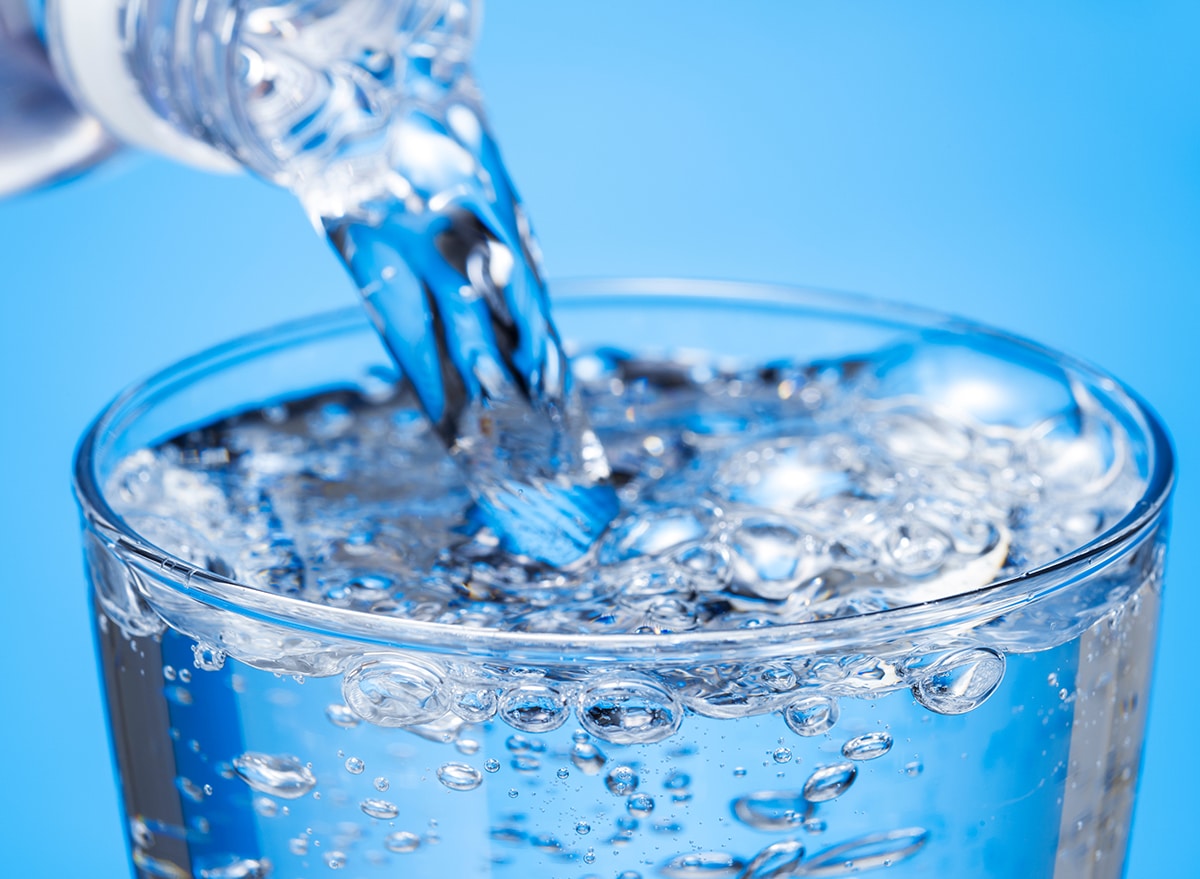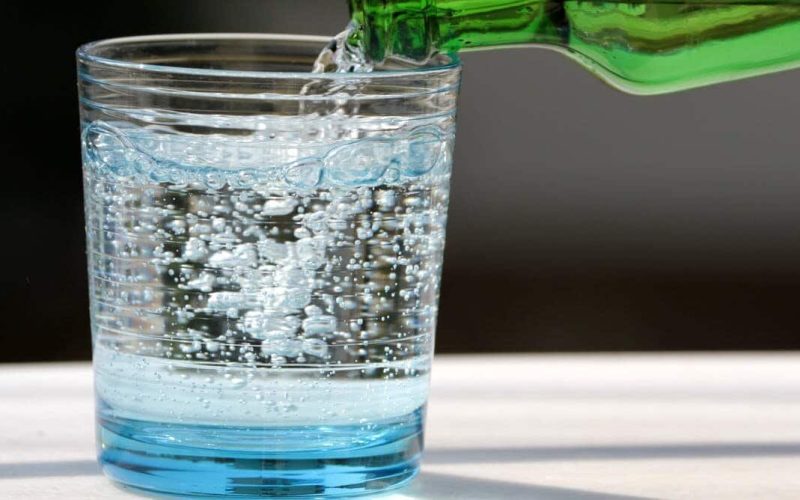Carbonated water, also known as sparkling water, is a refreshing drink and an excellent substitute for sugary soft drinks. However, a few people are worried that it might harm human health.
This article takes a thorough look at the health effects of carbonated water.
What is carbonated water?
Carbonated water is a liquid that has been instilled with carbon dioxide gas under pressure. This creates a bubbly beverage that is also referred to as sparkling water, seltzer water, soda water, club soda, and fizzy water.
Carbonated waters often have salt added to enrich its taste. Little amounts of other minerals are also added. Natural sparkling mineral waters such as Perrier and San Pellegrino are different. These waters are gotten from a mineral spring and usually contains minerals as well as sulfur compounds.
They are also carbonated. Tonic water is a kind of carbonated water that has a bitter compound called quinine, together with sugar or high-fructose corn syrup.
Is carbonated water acidic?
Carbon dioxide and water react chemically to create carbonic acid, a weak acid that is known to promote the same nerve receptors in your mouth as mustard.
This prompts a burning, prickly sensation that can be both infuriating and satisfying. The pH of carbonated water is between 3 – 4, which indicates that it is slightly acidic. Nonetheless, consuming an acidic beverage such as carbonated water doesn’t mean that your body will become more acidic.
Your kidneys and lungs eliminate the extra carbon dioxide in your body, keeping your blood at a pH level of 7.35–7.45 irrespective of what you eat or drink.
Does carbonated water affect dental health?
Among the biggest worries about sparkling water is its effect on the teeth, as the enamel is directly exposed to the acid.
There is limited research on this topic, but one study discovered that sparkling mineral water damaged the enamel, just slightly more than still water. Also, mineral water was 100 times less dangerous than a sugary soft drink.
A different study also revealed that carbonated beverages displayed a strong ability to destroy the enamel, but only if it contains sugar. A non-carbonated sweet drink (Gatorade) was also found to be more dangerous than a sugar-free carbonated beverage such as Diet Coke.
Another research placed specimens of tooth enamel in several beverages for about 24 hours. The sugar-sweetened carbonated and non-carbonated drinks caused a more significant enamel loss than their diet equivalents.
An analysis of several types of research revealed that the mixture of sugar and carbonation might lead to serious dental decay. Nonetheless, ordinary sparkling water seems to pose little or no threat to dental health, except for the sugary types.
If you’re worried about your dental health, drink sparkling water while eating or rinse your mouth with ordinary water after drinking it.
Does it influence digestion?

Carbonated water might be good for your digestive health in many ways, and that includes:
Carbonated water can enhance swallowing ability
Studies suggest that sparkling water may improve swallowing ability in both young and older adults. In a study, 16 healthy individuals were asked to drink different beverages repeatedly.
Carbonated water demonstrated the most potent capacity to promote the nerves responsible for swallowing. Another study indicated that the mixture of cold temperature and carbonation promotes these beneficial effects.
Also, an examination of 72 people who felt a constant need to empty their throats, swallowing ice-cold carbonated water resulted in an improvement in 63% of participants.
May improve the feeling of fullness
Sparkling water might help food stay in your belly for a more extended period, which can cause a greater feeling of fullness.
During a study in 19 healthy young women, it was discovered that the fullness scores were higher after the participants consumed 8 ounces (250 ml) of soda water, compared to after drinking plain water.
Nonetheless, more researches are required to verify these results.
May assist in relieving constipation
People who experience constipation might discover that drinking sparkling water helps relieve their condition.
In a 2-week review in 40 older individuals who had experienced a stroke, normal bowel movement regularity practically doubled in the group that consumed carbonated water, compared to the group that drank ordinary water.
Participants reported a 58% drop in constipation symptoms. There is also proof that carbonated water may reduce other signs of indigestion, including stomach pain.
A controlled study assessed 21 people with chronic digestive problems, and after 15 days, those who consumed carbonated water experienced considerable improvements in digestive symptoms, constipation, and gallbladder opening.
Does it influence bone health?
Numerous people believe that carbonated drinks aren’t good for bones because of their high acid content. Nevertheless, the study indicates that the carbonation isn’t to blame.
An observational study in over 2,500 people discovered that cola was the only drink linked to significantly lower bone mineral density. Carbonated water seemed to have zero effect on bone health. Unlike clear soda and carbonated water, cola drinks contain lots of phosphorus.
Researchers suggested that the cola drinkers might have been drinking excess phosphorus and not enough calcium, providing a possible risk factor for bone loss.
In another research, teen girls who drank carbonated drinks were discovered to have lower bone mineral density. This was because of the beverages that replaced milk in their diet, resulting in insufficient calcium consumption.
In a coordinated study in 18 postmenopausal women, consuming 34 ounces (1 liter) of sodium-rich sparkling water every day for eight weeks resulted in better calcium retention than drinking ordinary mineral water. Also, there were no negative effects on bone health in the sparkling water group.
Also, animal examination indicates that carbonated water could even enhance bone health. Supplementing hens’ diets with carbonated water for six weeks caused an increased leg bone strength compared to tap water.
Does carbonated water affect heart health?
A few studies suggest that carbonated water could enhance heart health, but the evidence is insufficient.
Research in 18 postmenopausal women demonstrated that consuming sodium-rich carbonated water lessened LDL (bad) cholesterol, inflammatory markers, as well as blood sugar. They also experienced a improvement in HDL (good) cholesterol.
The calculated risk of having heart disease within ten years was 35% lower among those who drank carbonated water than those who consumed the control water. Nonetheless, since this was only one study, further investigation is required before any conclusions can be drawn.
No evidence indicates that carbonated or sparkling water isn’t good for you. It is not that dangerous to dental health, and it appears to have zero effect on bone health. Also, A carbonated drink might even help digestion by enhancing swallowing ability and decreasing constipation.
It is a calorie-free beverage that induces a pleasurable bubbly feeling. A lot of people prefer it over still water, so there isn’t any reason to abandon this beverage if you enjoy it.








